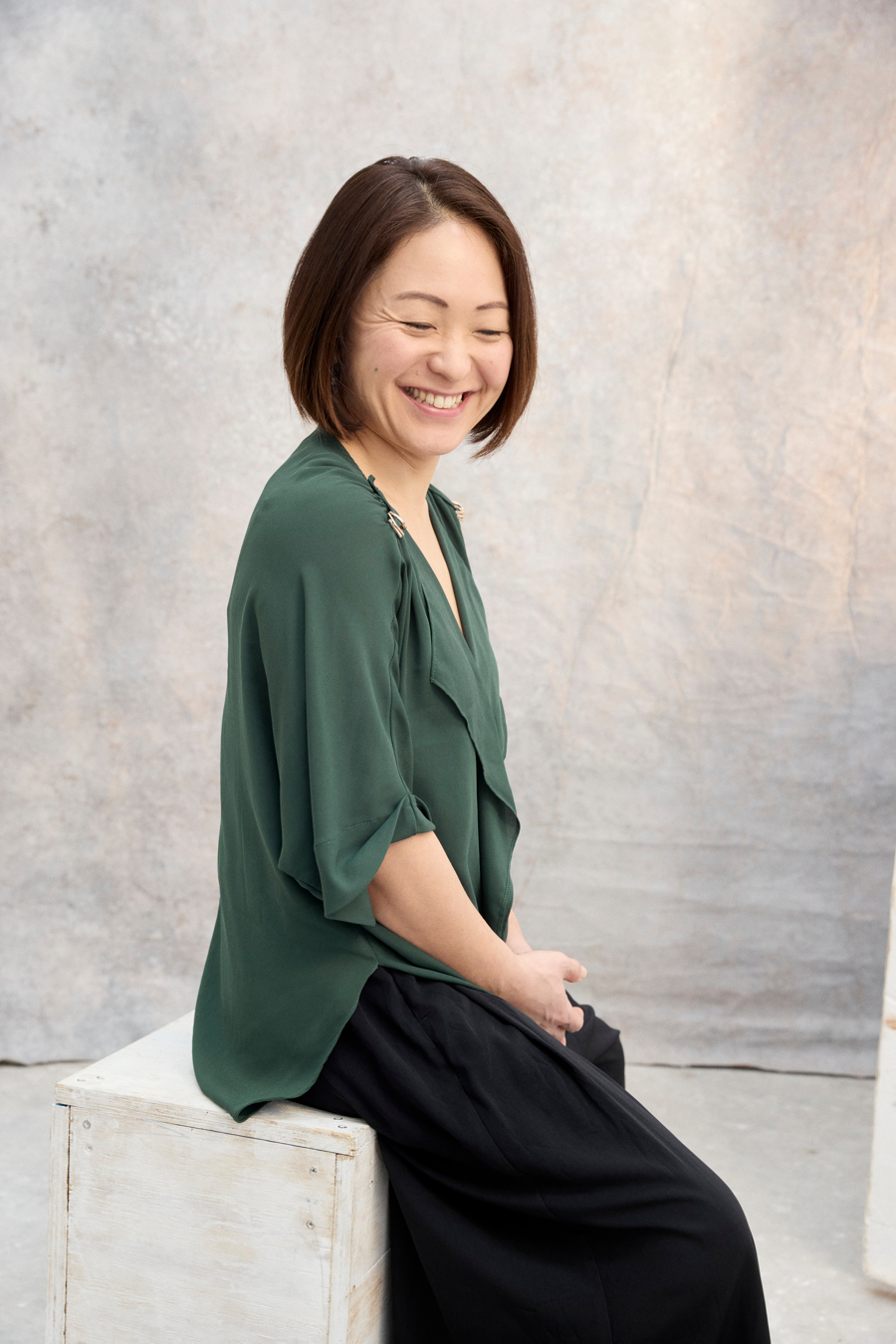Haruka Kuroda is an intimacy and combat specialist who worked on the recent BBC TV drama, Sherwood as well as on stage shows such as Starcrossed at Wilton’s Music Hall and The Lesson at Southwark Playhouse. Susan Elkin chatted to her.
You’re an actor and voice over artist as well as fight and intimacy director. Did you always want to work in the performance industries? Yes. As a child growing up in Japan, I always enjoyed performance and theatrical things. I see exactly the same trend today in my five-year-old daughter! When I was 16, one of the directors I knew though youth projects told me that if I was serious about a performing arts career then England is the place. Of course, I didn’t speak a word of English but with all the certainty of youth, I decided that was what I wanted to do so I came to boarding school in England to do A-levels.
And you never left? That’s right. After leaving school I did University of Chichester’s one-year foundation course and then went on to Guildford School of Acting (GSA) for a three-year BA in musical theatre. I did well out of the showcase, got work and stayed in Britain – then before you know it, you’re ten years in. I now live in Southend-on-Sea with my partner and daughter. He has a “proper job”, but he used to be a professional musician. He’s actually more theatrical than I am. The family joke is that I perform only if I’m paid to do so. He does it all the time anyway.
Where did your interest in combat start? I did some stage combat at GSA and really liked it. I wasn’t quite fluent in English then, but with stage combat it didn’t matter. I’m really sorry, by the way, that these options are gradually disappearing from drama school curricula. When I graduated I wanted to do more stage combat and trained to teach it. I was certified as a British Academy of Dramatic Combat teacher five years after I left drama school.
But now you’re doing intimacy as well. Are the two things connected? Very much so. Most intimacy directors in the UK and the USA (usually known as intimacy co-ordinators if it’s film or TV) are combat specialists first. It’s all about physical story telling. The tricks such as angles, gaps and misdirection are very similar. Fight and intimacy help each other. If you’re doing a strangulation scene, for example, and an actor isn’t comfortable with hands round his or her neck then I might suggest hands on shoulders with the victim moving in a different way. I teach students and actors that we have to have a huge conversation about boundaries and consent.
What made you take it up? I was drawn to this work because I once had a really bad experience as an actor. I was working on a short film and told the director that I was uncomfortable, really uncomfortable, with what I was having to do. He refused to change anything so, in the end, I walked away from the project. For years I wondered if I did the right thing. Now, given the way attitudes are gradually changing in the industry, I’m confident that I did.
How did you get into intimacy work? I became aware of it and, remembering my own bad experience, was very interested. Then I discovered there was training and approached Yarit Dor who was offering it. Yarit had got some funding because in Britain most intimacy directors and co-ordinators are cis female Caucasians and she wanted to promote more diversity. Then, of course, in 2020 we had to work out how to do it all online! That meant every Sunday for 4 months working though everything from mindset to the legal side. We finally met in the room last year.
And you got work on the back of that? I did. My first intimacy job was on the TV show Life after Life which I got because Yarit was getting more offers than she could accept and recommended me. The director liked my work and that has led to all the jobs I’ve done since.
Why has the need for intimacy coordination only just been recognised? Until recently intimate or fight scenes – and sometimes it’s a violent sex scene so it’s both – would have been choreographed by a movement director. Not all directors can, or do, work with an intimacy director. There are only a handful of us in the UK at present so there’s a shortage. And, obviously, some budgets don’t extend to it. Some fight directors will do intimacy as well, but they may not be specifically trained or accredited.
Is the emergence of this role really helping the industry? Definitely. Confidence is gradually building up in the industry. Actors are coming to understand that it doesn’t have to be awkward. Connor Delves, who played Mercutio in Starcrossed, said it was much easier to rehearse the scenes with me there. He said it made it freer because the presence of an intimacy/fight director promotes a safety net of understanding and makes absolutely sure that there can be no abuse.
What is your next job? It’s an acting role with the RSC. I’m in My Neighbour Totoro from 8 October to 21 January 2023 – a longer run than I’m used to taking on, but I’m intending to do more intimacy work next year.



